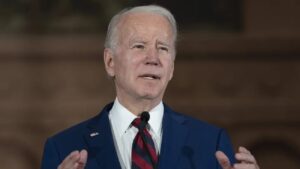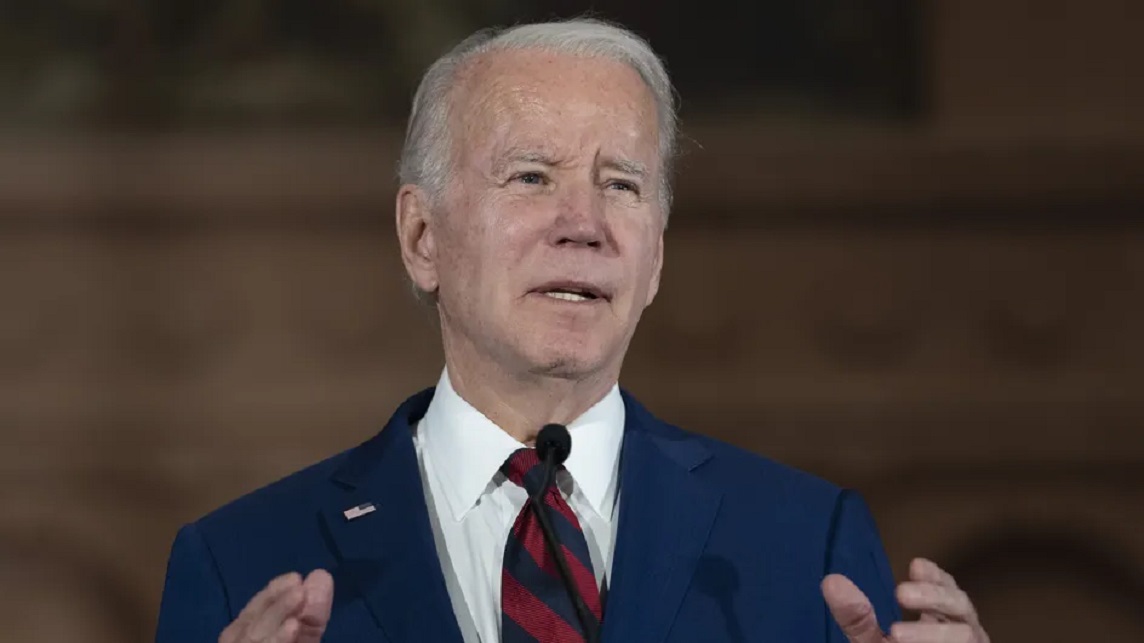While Paris will host a conference on Ukraine on Tuesday, another international (and large-scale) summit will take place in Washington: a United States-Africa summit that will last three days.
 Joe Biden, President of the United States, on December 7, 2022. (MAXPPP)
Joe Biden, President of the United States, on December 7, 2022. (MAXPPP)
It’s a big poster. 49 African heads of state are invited, all the leaders of the continent – with the exception of Burkina Faso, Mali, Guinea and Sudan – because these countries are suspended by the African Union. The last exception is Eritrea: the United States has no diplomatic relations with this dictatorship which is completely closed in on itself. Otherwise, it’s a big cast and a real symbol: the realization of a 180 degree turn for Washington on the relationship with Africa. In short, Donald Trump was totally uninterested in the continent. Conversely, Joe Biden, like Barack Obama, considers him essential on countless subjects: Africa is both an engine of growth, a diplomatic issue, a conflict zone, and an energy transition laboratory. . The head of American diplomacy Anthony Blinken has also made three trips to the continent in the past 12 months, which is considerable.
Fighting Russian and Chinese influence
The objective is twofold for Washington. On the one hand, to face the military influence of Moscow, with in particular the presence of the militiamen of the Wagner group in several countries like Mali or the Central African Republic. On the other hand, reduce Beijing’s economic influence: China has been increasing infrastructure construction in Africa for 20 years. For example, more than 100 stadiums built in the continent and also airports, highways, etc. Major consequence for African countries: growing indebtedness vis-a-vis China.
The United States therefore wants to get back into the game. “On food security, the priority is the urgent needs: to increase production and exports. On African soil and outside. An increased challenge due to the war in Ukraine. To this end, since last October, the United States has pledged more than $7 billion in humanitarian and food aid to Africa,” said Vice President Kamala Harris, for example, in a message sent to the day before this summit.
But it will not only be a question of food security during these three days. Also on the agenda: trade agreements, renewable energy partnerships, perhaps also military agreements, like the one Washington has just signed with Niger.
A difficult American bet to win
The big challenge is above all to move the diplomatic and geopolitical lines. We have seen several African countries, such as South Africa, refuse in recent months to condemn the Russian invasion of Ukraine. Reconciliation between Washington and African countries is not certain. Some African heads of state go to Washington somewhat reluctantly. They see in this invitation a kind of somewhat condescending summons and since there are a lot of them, not everyone will see Joe Biden in a bilateral interview. In the other direction, the presence of several very authoritarian leaders (the Egyptian Sissi, the Equatorial Guinean Obiang, the Chadian Deby) will overshadow the picture of a Joe Biden who poses as a promoter of the democracy.













































